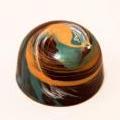-
Welcome to the eG Forums, a service of the eGullet Society for Culinary Arts & Letters. The Society is a 501(c)3 not-for-profit organization dedicated to the advancement of the culinary arts. These advertising-free forums are provided free of charge through donations from Society members. Anyone may read the forums, but to post you must create a free account.
Restaurant reviews
-
Similar Content
-
- 296 replies
- 64,445 views
-
- 254 replies
- 67,940 views
-
- 33 replies
- 7,185 views
-
- 5 replies
- 409 views
-
- 46 replies
- 14,224 views
-
-
Recently Browsing 0 members
- No registered users viewing this page.






Recommended Posts